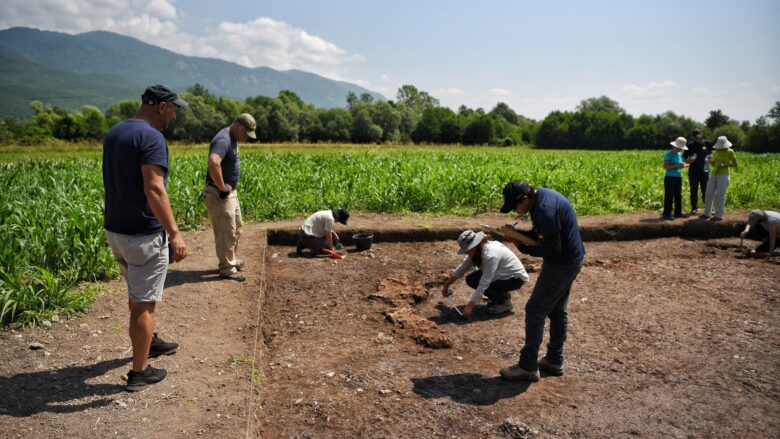Significant archaeological excavations are currently underway in the village of Vrellë, Istog Municipality, at one of Kosovo’s most important prehistoric sites: the Neolithic settlement of Lluga.
These excavations are a collaborative effort between the Archaeological Institute of Kosovo and the University of Michigan (USA), with the support of the Ministry of Culture, Youth, and Sports. This international partnership is bringing to light evidence of organized life that flourished in this area approximately 7,000 years ago.
Insights into a Developed Neolithic Community
According to the acting Minister of Culture, Hajrulla Çeku, Lluga represents one of the earliest settlements in Kosovo’s territory. The site features houses built from mud and wood, indicating a developed community during the Neolithic era.
A particularly unique aspect of this locality is the discovery of a workshop for flint tools, as well as figurines of goddesses. These well-known artifacts attest to the spiritual, artistic, and social development of that ancient period.
Minister Çeku emphasized that this excavation project is more than just a scientific expedition; it is an endeavor to illuminate the roots of civilization in Kosovo and to strengthen the connection of current generations with their millennial heritage.







